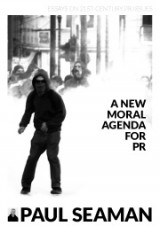Queen Elizabeth I: PR Icon (part 2)
This second installment of a two-parter on Queen Elizabeth I describes how PR acts in support of leadership and authority using rhetoric’s persuasive powers. It tells the story of the emergence of modern PR practice and the modern world it shaped. (It is work in progress for my book: On Message: Propaganda, persuasion and the PR game.) Read on ›


